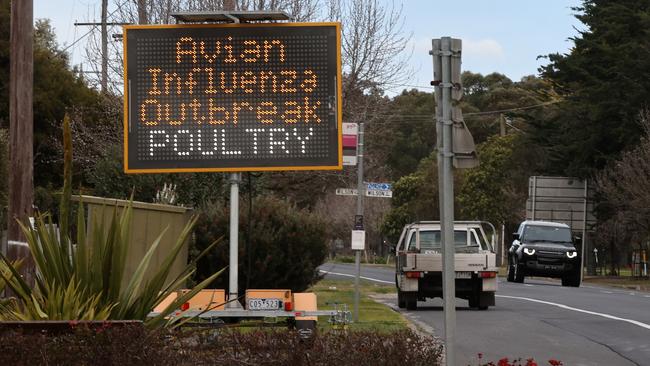Victorian government propose mandate and fees for PIC changes
Farmers will be forced to pay a fee to “periodically” update their property identification codes, under an Allan Government proposal.

The debt-ridden Allan Government wants to force farmers to “periodically” update their property identification code details and impose a fee as part of the process.
The government is yet to settle on the cost and frequency of PIC updates, as it seeks
In launching the proposal Agriculture Victoria stated “the effectiveness of the PIC system relies on accurate and up-to-date data” and that changes in property boundaries, management, ownership, contact details, livestock and business types “may go unreported”.
“This can delay emergency responses, hinder biosecurity efforts, and negatively impact animal and human welfare.”
The Victorian Farmers Federation livestock group is preparing to lodge a submission with the government, which is due by Friday, February 28.
VFF livestock group president Scott Young said producers needed to know what was behind the fee proposal, given cattle, sheep, goat, pig bee producers were already contributing to compensation funds that held $57.4m as of June 30 last year.
The State Revenue Office collected $11.63m in duties from livestock producers in 2023-24, almost double the $6m it collected in 2022-23.
Mr Young said producers were also concerned that the PIC proposal was not simply collecting data that was supplied under the National Livestock Identification System, which already tracks stock movements.
But while Agriculture Victoria acknowledged the value of the NLIS, its proposal states other information, such as changes to property boundaries, purchases and ownership needed to be regularly updated across all livestock sectors.
“Recent biosecurity threats, including the threat of avian influenza (H5N1), highlight the importance of maintaining accurate PIC data,” Agriculture Victoria stated.
“Up-to-date records enable rapid identification of at risk properties, timely communication with owners, and effective containment measures during outbreaks. The same applies to natural disasters, where accurate information helps prioritise assistance.”
The government’s biosecurity plan also calls for the introduction of a general biosecurity duty, which would obligate all Victorians to take all “reasonable and practical steps” to identify and manage any threats to agriculture.
“In cases where there is a failure to comply with the GBD and the level of harm meets a threshold, powers could be provided to authorised officers to issue directions requiring compliance,” Agriculture Victoria states.
“Failure to comply with such directions could then be established as an offence, enabling enforcement where necessary. Another consideration could involve making non-compliance with the GBD itself an offence, though this would require careful consideration to ensure proportionality and practicality.”
The GBD would require:
LIVESTOCK producers to ensure animals and farm inputs are sourced from reputable suppliers and monitored for signs of illness. Managing property biosecurity, such as using clean feed and maintaining secure fencing. Participating in quality assurance programs, such as the Livestock Production Assurance program, to ensure compliance with biosecurity, animal welfare, and food safety standards.
TRANSPORTERS, utility companies and local government ensure vehicles and equipment are cleaned between properties to prevent the spread of contaminants or diseases, weeds or seeds.
SALEYARDS implement measures to minimise disease spread, such as regular cleaning of facilities and enforcing hygiene protocols.
HORTICULTURE AND GRAIN GROWERS understand trade requirements for plants and manage property biosecurity by monitoring for pests and diseases, cleaning equipment, and limiting property access to reduce risks.
MAIL, courier and logistics businesses secure and report suspected biosecurity risks or live animals that may be addressed to move into Victoria or a declared area contrary to requirements.
HOME gardeners understand and mitigate biosecurity risks, particularly when purchasing plants online. Reporting pests or diseases to authorities.
GENERAL PUBLIC avoids activities that may create biosecurity risks, such as feeding prohibited swill to pigs or moving contaminated materials and complying with advisory road signs when entering or leaving declared areas.




